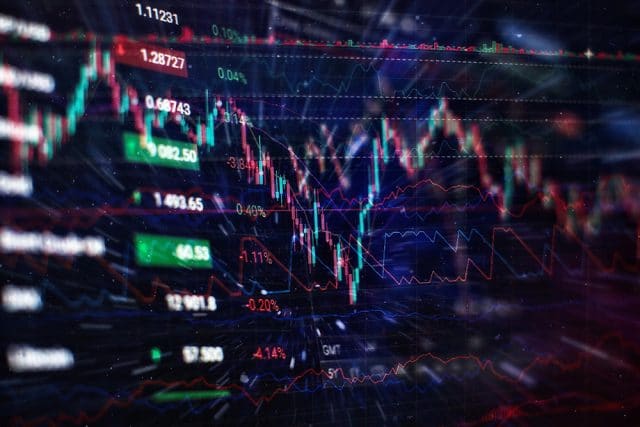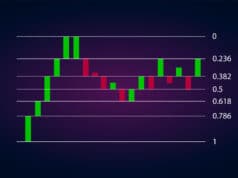Despite that forex is the most liquid financial market, like any instrument, it isn’t completely efficient. Although trade execution occurs in lightning-quick milliseconds, this very attribute can also be a detriment.
With an exceedingly high number of buyers and sellers at every second, on some occasions, there is never a guarantee a trader’s orders will execute at the requested prices. This pricing anomaly is known as slippage.
While it is not something happening frequently, there is never any telling when it could occur, nor is there a foolproof method of preventing it. This article will detail more precisely what slippage entails.
What is slippage?
As briefly established, slippage is a rare pricing irregularity when a trader’s order executes at a different price than what they initially set. Most assume slippage occurs only for entries, though it can also happen when exiting positions.
We typically see this anomaly during periods of high volatility, like high-impact news releases, busy trading sessions, and session overlaps. High volatility brings about unusually increased trading activity of buying and selling that can be overwhelming for liquidity providers.
Conversely, slippage can also happen in quieter periods of low liquidity where there are few market participants to fulfill orders. We generally class slippage as being either positive or negative.
Generally, many trading communities naturally view slippage in a bad light because when it goes against someone’s favor, it can be an unpleasant experience. However, in some other cases, a trader may be fortunate enough to receive a better-than-expected entry.
What causes slippage?
Prices in any forex market fluctuate in a blink of an eye. Sometimes these changes can be minimal or quite drastic. As traders, we must appreciate that for every time we want to buy, there needs to be an opposite party with a sell order of the same size at the requested price.
Slippage for opened orders
Suppose we desired to buy 1 standard lot of USD/JPY at 111.000, there needs to be a liquidity provider able to sell us this pair with the same parameters in price and size. It’s easy to take for granted how efficient this system is since it happens effortlessly.
Slippage would occur if, for some reason, there is no party capable of selling a lot size’s worth of USD/JPY to us, causing a delay. By the time a seller comes into the market to sell, the price would probably be different than what was demanded.
No one should underestimate how prices can change quickly. The order will then occur at that level, which may either be better or worse than the initial one.
Slippage for closed orders
Slippage can also occur if we wanted to exit our trades. Let’s imagine after buying 1 lot of USD/JPY at 111.000, the price moves 20 pips in our favor, resulting in a new price of 110.960.
If we desired to close the position at this level, there needs to be an available buyer willing to buy at that precise point. There could be three scenarios here. Ideally, and in most cases, liquidity is deep enough to close this position with a profit after the platform has found a buyer.
The second possibility is if there are no buyers available at this level, the price might fall lower than our requested order, resulting in a bigger gain by the time a buyer comes into the market.
Lastly, an unfortunate case is in the inverse where price moves above the requested order back to our entry or even above it.
Positive and negative slippage
Going back to the first instance of the USD/JPY trade, let’s observe another case where slippage could be positive or negative. When taking a short position, the aim is to buy as low as possible.
So, positive slippage would be if the new price of the order is 111.950 (5 pips better or lower than 111.000). Negative slippage would be if the price now were 111.050 (5 pips worse or higher than 110.00).
In these scenarios, positive slippage suggests many sellers were willing to sell USD/JPY to us at lower prices, resulting in a better entry. Of course, the opposite is true. Markets are continuously fluctuating between periods of high and low liquidity where execution never remains static.
Are there methods of avoiding slippage?
Slippage is not entirely unavoidable for most traders, though there are some approaches to minimizing its presence.
- Trading style. The likelihood of someone ‘being slipped’ primarily depends on their trading style; the higher the trade frequency, the more chances of seeing slippage. More long-term speculators or swing traders are at an advantage here and are far less likely to experience this.
- Never trading during specific periods. Regardless of the style, it’s always advisable to stay away or not place any orders before and during high-impact news events and the rollover period.
- Choosing the most liquid markets. Generally speaking, many prefer sticking with the most liquid forex markets, and that includes all the major pairs and most of the minors or crosses.
Although volatility can be high on any instrument, these markets have deeper liquidity because of how many people are trading them. Therefore, traders will almost always receive the fastest execution with minimal or no delay.
Most will avoid trading exotic pairs since they are thinly traded, meaning liquidity can be lower in some cases if fewer people are exchanging them.
Some trading literature has suggested limit orders are immune to slippage. Technically, this isn’t necessarily true because a limit order, assuming price reaches it, does not guarantee a trader a sure fill regardless of market conditions.
Limit orders can help instill more discipline in entries but aren’t devoid of slippage because the broker goes through the same filling process as they do with market execution. Lastly, some brokers offer guaranteed stop losses, usually at a premium if they get filled. However, this can only avoid slippage for closed positions rather than open ones.
Final word
A broker will always execute whatever the current price is, even if it’s different from what we assumed. Nonetheless, slippage is still quite rare, and we should still commend how brokerages provide an efficient market at least 98% of the time.




